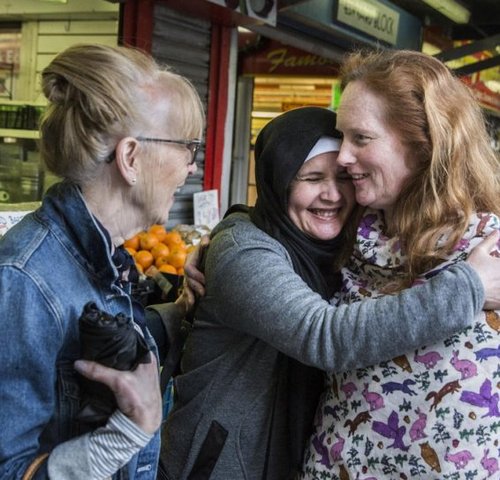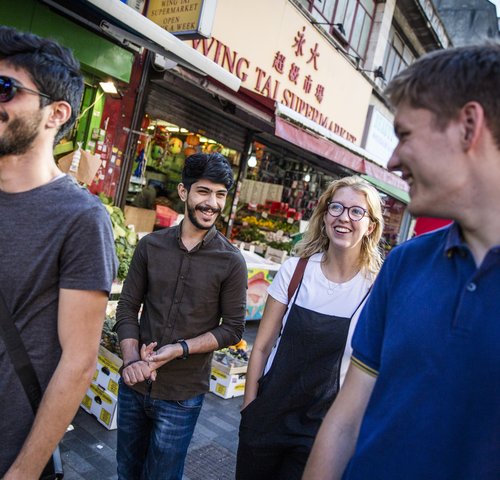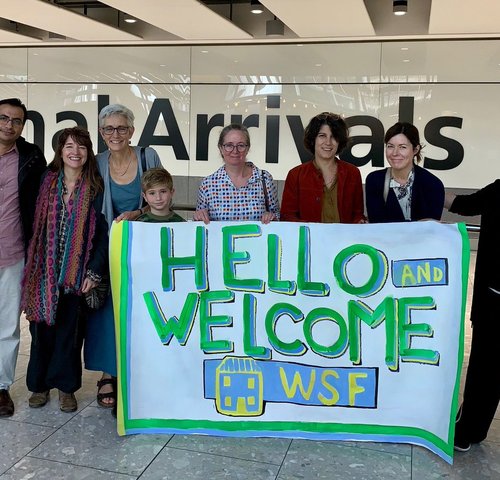Find a House
Useful Resources:
Find out the Local Housing Allowance Rates for your area . Note that this will be impacted by the benefits cap
Download this template brief , that explains what you are looking for. This can be sent to groups such as Housing Associations, Landlords and Letting Agents.
How to Fit a Douche – It is likely that a Middle Eastern family will expect a douche spray by the toilet. These instructions show how to fit a spray without breaking the budget, or the pipes (Thanks to Raynes Park Community Sponsorship group for sharing!).
Information about Void Costs - the Home Office can cover up to 8 weeks in "void costs" while a property remains empty.
Guide to Preparing Accommodation
List of Food, Furniture and Household Items
For many groups, this is a biggest challenge. Your sponsoring group will need suitable, safe and affordable housing for a refugee family. Rightly, you aren’t allowed to put the family up in your own home, even temporarily. You must find them a place of their own from Day One.
To meet the requirements of the Home Office the home will need:
- A minimum two-year lease (ideally with the possibility to extend, should the family wish)
- Its own front door
- To meet environmental standards and be properly maintained
- To be furnished and have all the usual amenities
Either The rent should not exceed Local Housing Allowance rates so that the housing benefits the refugee family will receive will cover the rent
- You will have to top-up the rent out of the sponsoring group’s fund
Challenges and Opportunities
Community Sponsorship is an unusual situation - you don't yet know who the tenants will be, or when they will arrive. When they do arrive, they will be - at least initially - reliant on benefits.
For these reasons, you will need to find and develop a good relationship with an understanding and philanthropic landlord. They need to be flexible and place a large amount of trust in you.
Thankfully, scores of incredible landlords have been motivated to rent their property to a resettled family.
Read a blog from one such landlord here
You could offer the following to landlords:
- Guaranteed rental income for at least two years
- Free cosmetic improvements to the house (you're sure to find willing volunteers to paint, garden, and put up shelves - and you could seek donations from local hardware stores)
- A support network for the family, to help them manage finances and house maintenance
- The knowledge that you are changing the lives of a vulnerable refugee family
Ideas for Finding a House
Leaflets: Herne Hill Welcomes Refugees held a week-long leaflet drive. They distributed 7,000 leaflets through letterboxes and on community and cafe noticeboards. They found three houses this way, and were able to pass two onto other local groups! Other groups have since followed their lead, with equal success.
Housing Associations: Groups have received great support from Housing Associations. Although much of their stock is allocated to council housing, they sometimes have private developments that they can offer. One group were even offered a house in the very centre of London! It is best to contact as high as possible (CEO/Trustees) as ultimately the decision would lie with them - you don't want to be blocked before you reach them. We have contacts who may be able to help you connect - get in touch at [email protected]
Letting Agents: If you develop a good relationship with letting agents, and provide a briefing of what you are looking for, they can speak to potential landlords on their books. Several groups have found housing this way.
Conversely, it may be more helpful to go around Letting Agents, who have strict procedures and systems, and reach out directly to landlords. OpenRent is one such platform that allow you to contact a landlord directly.
Religious Organisations: Reach out to all the religious institutions in your area. We've had families housed in Salvation Army properties - The Church of England have a large portfolio of properties across the UK - a Methodist church in Birmingham offered students accommodation in their ownership - A London Synagogue refurbished their caretakers home which was no longer in use - The first sponsored family was even housed by Archbishop of Canterbury in Lambeth Palace!
Speak at Congregations: While reaching out to institutions, also ask if you can make a short announcement to their congregation (e.g. Friday prayers at mosque, Shabbat morning at synagogue, a Sunday church service). This is a great place to reach large numbers of local people, who very often are socially minded. Who knows, you may find some willing donors and volunteers at the same time!
Buy a house: This is the big one! Of course, this can take a lot of time, fundraising, and responsibility - but it is an excellent way to provide long-term sustainable solution, and can be a great investment. It could be a one very large donation (one group received a legacy for the purpose), a few wealthy philanthropists, or a whole community of smaller investors - develop a trust and ensure that there are clear guidelines for how repayments would work/the charitable purposes of the property. We can put you in touch with a group that has taken this approach, to receive advice.
When should we look for a house?
It can take several weeks from submitting your application to the family’s arrival. It could be very expensive to keep a property free during this period. You can, however, submit your application before you secure housing (if your Local Authority consents), and receive “Approval in Principle”. Once you secure a house, you will need to get approval from the Local Authority, and update your application with the relevant information.
Once you are matched with a family, it takes a further 6-8 weeks for them to arrive. The Home Office will cover 8 weeks in "Void Costs" while the house remains empty during this period. Read more here.
Contact [email protected] for advice and support.


